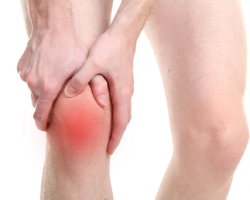Parkinson’s disease is a tricky disease, in that the first symptoms don’t even develop until 80% of the damage that causes the disease has already occurred. As a result, symptoms aren’t noted until it’s actually rather late in the disease.
In particular, Parkinson’s disease is the result of degenerative damage done to the substantia nigra, the part of the brain (just above the brainstem) responsible for dopamine production. Given that dopamine is the neurotransmitter most responsible for bodily movement and control, this can result in substantial problems, substantial problems that only worsen as the disease progresses.
As there is no yet known cure for Parkinson’s, treatment consists of learning how to best manage symptoms, which makes it altogether more important to see the early warning signs and begin treatment as early as possible.
Let’s look a little more closely at what those early warning signs might look like:
- Rigidity. One of the ways in which this lost muscle control manifests is in extremely tight muscles, or rigidity. Most often Parkinson’s patients may not even notice their rigidity until it is pointed out by a physician, especially as people tend to tighten up as they age naturally. Rigidity is one of the defining characteristics of Parkinson’s disease, however, so if a doctor notes rigidity, they may well call for more tests to determine if Parkinson’s may be responsible.
- Balance and coordination issues. Similarly, lost muscle control manifests in difficulty maintaining balance and coordination. Tight muscles (as well as tremors, which we’ll discuss next) may make it more difficult to control fine motor function, especially when it comes to hands and feet. This may translate into stumbling and fumbling, an inability to catch things or hold onto them, and drastically reduced hand-eye coordination. Parkinson’s patients may need frequent help maintaining their balance, so if you note yourself or a loved one grabbing things for balance more frequently, this may be an early warning sign.
- Tremors. Tremors refer to uncontrollable shaking, generally of the hands or feet, though it may also affect other parts of the body. In the earliest stages of the disease, tremors may only affect one side of the body, though stress and other factors may also result in tremors on both sides of the body even at the onset of Parkinson’s. This is also one of the first visible signs Parkinson’s patients or their family and friends may notice, and will often call for further tests when first noticed. In particular, a doctor will watch to see if these tremors occur while the patient is at rest, which is common for Parkinson’s sufferers.
- Movement difficulties. In particular, doctors may look for one or more of three different types of movement difficulties: akinesia (difficulty initiating movement), bradykinesia (slowness of movements), or hypokinesia (decreased range of movement). This may be especially pronounced in large motor movements such as walking or fine motor movements such as handwriting (where letters may be poorly formed, for instance).
- Other sensory symptoms. Pain in affected areas, restlessness even when otherwise physically exhausted, numbness, and even burning sensations in extremities can also be signs of Parkinson’s.
Unfortunately, signs and symptoms of Parkinson’s disease can also commonly be attributed to other illnesses or even exhaustion caused by stress and overwork. As a result, many patients don’t visit a doctor until they have been experiencing these symptoms for months or even years, at which point the disease has progressed further.
Parkinson’s is not age-dependent, either, so while it is most common in older patients (60+), it is increasingly more frequently diagnosed in younger patients; as many as 10% of patients may be diagnosed closer to age 30.
As a result, if you notice any of the symptoms above in yourself or a loved one, don’t be afraid to visit your doctor to get a better feel for what may be causing such symptoms. If it is Parkinson’s, it’s better to catch it earlier, so you can better devise a treatment regimen that works for you. And if it isn’t, it’s still better to know—so you can treat whatever it is that is causing these symptoms.

Multiple Sclerosis – An infographic by MS









